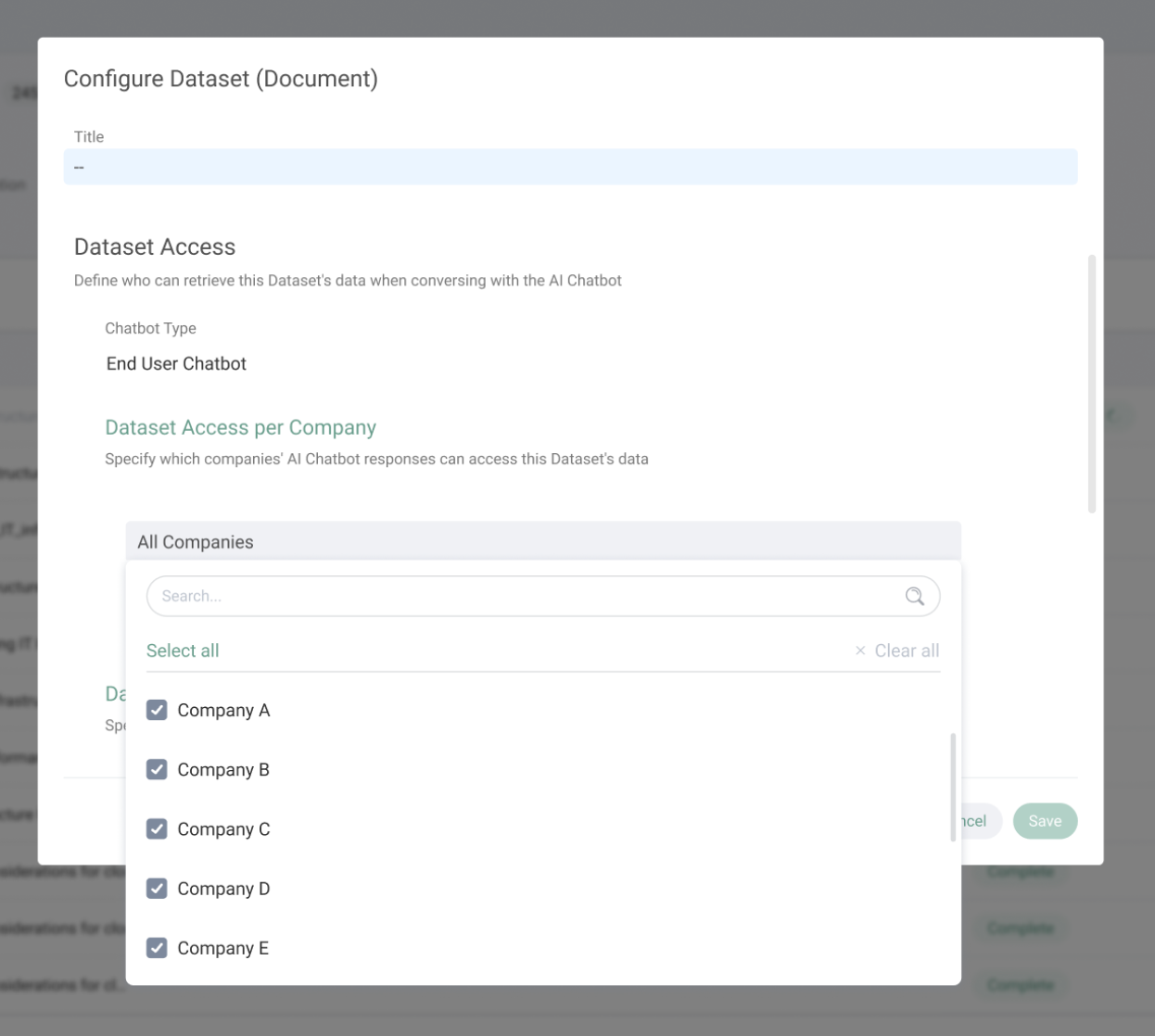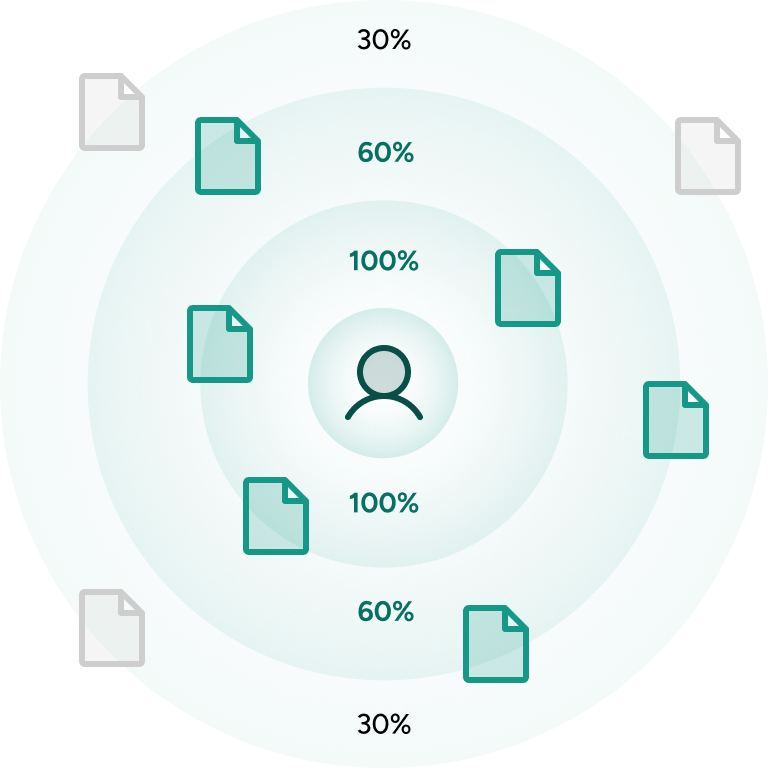Define a prioritization hierarchy for how the AI Chatbot considers the relevance of each Dataset source in the Data Pool.
Requirements:
SysAid Copilot and AI Chatbot enabled.
AI Admins can use Dataset Configuration Settings, or “Advanced configurations”, to adjust how the AI Chatbot prioritizes and selects Dataset sources when generating responses to user queries.
These advanced configurations include:
Setting access permission for the dataset content
Setting the relevance of a dataset
Setting a ‘Secured Spots’ amount for a dataset
AI Admins can edit and adjust these Settings at any point in time, as they see fit.
Dataset Configuration Form
To open this form:
Go to Settings > SysAid Copilot > Data Pool.
Select the relevant dataset and click the 3-dot menu in the top-right corner.
Click Edit
Adjust the fields.
Click Save
In the form, you will find the following settings:
Setting Dataset Permission
AI Admins can configure which Chatbots will have access to the content stored in a dataset, allowing for a personalized experience when interacting with the AI Chatbots.
Chatbot (optional) - select the AI Chatbots that will have access to the content in the dataset.
Company (optional) - select the SysAid companies that will have access to the content in the dataset, allowing their users to retrieve their information when interacting with the AI Chatbot.
Groups (optional) - select the SysAid Groups that will have access to the content in the dataset, allowing their users to retrieve their information when interacting with the AI Chatbot.
The dataset content will be available by default to all Companies/Groups with access to the AI Chatbot. By using the ‘Include’/’Exclude’ fields, the AI Admin can configure the permissions with advanced granularity.

Dataset Relevance Configuration
Matching Precision
The Matching Precision determines how strictly a dataset must match a user’s query before the chatbot prioritizes it. This score ranges from 0% to 100%:
High Threshold (e.g., 80-100%) → Strict Matching
The user query must be almost identical to the dataset entry.
Even small differences (e.g., synonyms, word order, or spelling variations) may cause no result.
.png)
Example:
Dataset: "Reset my password"
User Query: "Change passcode?" → May not match at 100% relevance
Medium Threshold (e.g., 40-70%) → Moderate Flexibility
Allows some variation like synonyms, word order changes, or minor spelling errors.

Example:
Dataset: "Reset my password"
User Query: "Recover my password" → Might match at ~30% relevance
Low Threshold (e.g., 10-30%) → Lenient Matching
Even loosely related phrases may return results.
Can lead to irrelevant matches if too low.
The matching percentage balance depends on the use case:
○ Need exact answers? → Keep relevance High at 80-100%
○ Want a user-friendly search? → Use 40-70%
○ Exploratory search? → Allow lower relevance at 10-30%
Secured Spots for Related References
Secured Spots define how many references from this dataset should always be considered when generating a response. These references aren’t guaranteed to appear in the chatbot’s final answer; they are simply prioritized for review when assembling the best response.
This helps ensure that critical datasets are always factored into the chatbot’s decision-making process.
Please note:
A dataset can have up to 20 secured spots.
